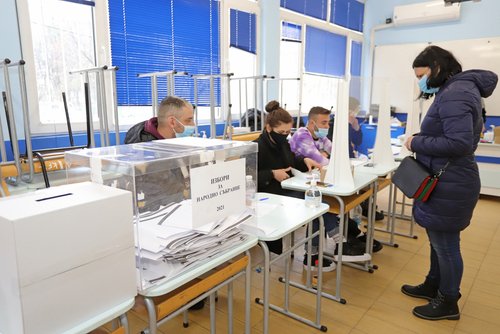Brussels (Brussels Morning) The latest poll for this Sunday’s Bulgarian snap election indicates the next parliament may have as much trouble forming a workable majority as the last, the very reason why this snap election had to be called in the first place.
Last April’s election ended the rule of long-time Prime Minister Boyko Borissov and his centre-right GERB party. Having emerged as a relative winner, he and his party were subsequently shunned by all the other major parties, which refused to enter a coalition with a PM perceived by a majority of voters to be corrupt.
The anti-establishment populist party, There is Such a People (ITN), led by TV host and singer Slavi Trifonov, emerged as the second-strongest option, but Trifonov refused a coalition offer from the third-placed social-democratic bloc BSP for Bulgaria.
With neither ITN nor BSP willing to work with GERB, and ITN refusing the socialists, forming a working majority proved impossible. This forced Bulgaria’s President Rumen Radev to call snap elections for July, in hopes they would yield a different result.
A poll published on Thursday by Alpha Research showed ITN in the lead, with 21.8%, with GERB close behind, having lost almost five percentage points since the April elections. The socialists remain in third place with around 16% of the vote, a slight improvement over their performance last time out.
The poll also showed a slight gain by the two anti-corruption parties, Democratic Bulgaria (DB) and Stand Up! Mafia Out! (ISMV), considered to be the most likely coalition partners for ITN. DB is currently polling at around 12%, and ISMV at around 5%. Translated into parliamentary seats, however, the three parties are likely to fall short of the necessary 120 MPs.
Come Monday, if polls turn out to be accurate, ITN will again have to contemplate either entering coalition with BSP or GERB, which is thought extremely unlikely, or the country may find itself heading towards yet another election, its third this year.




